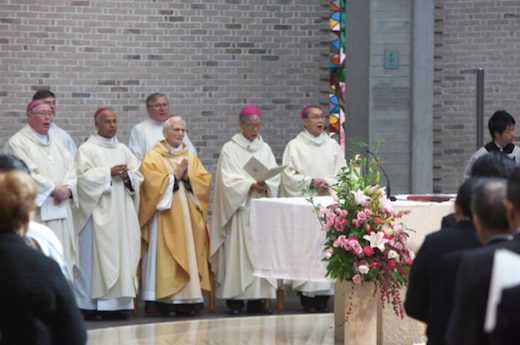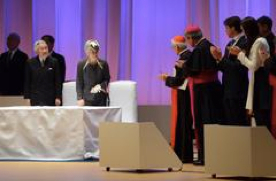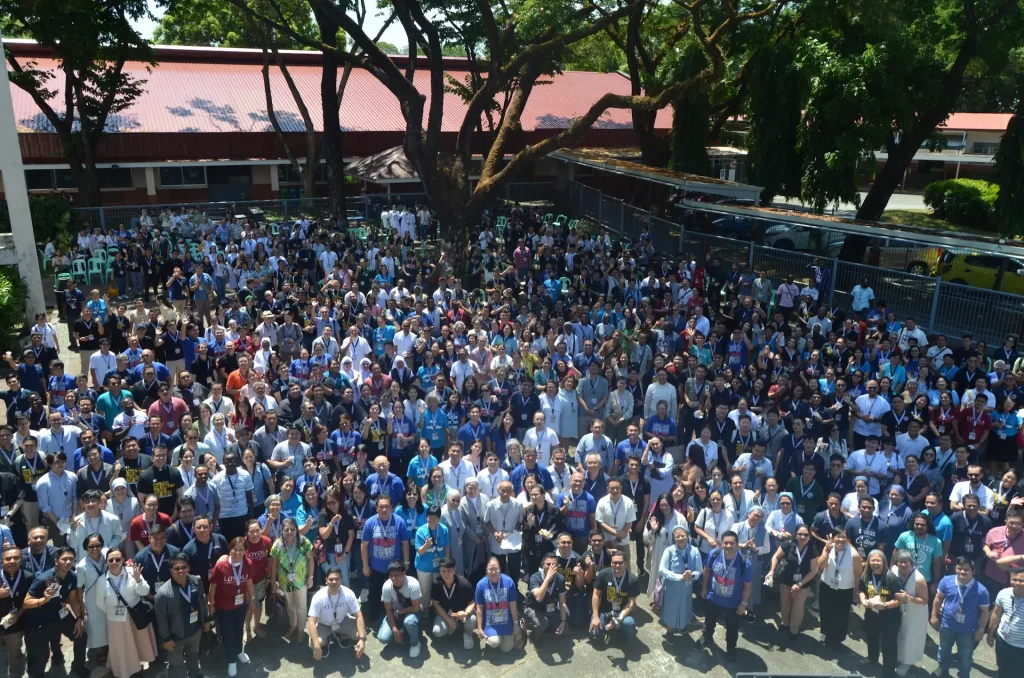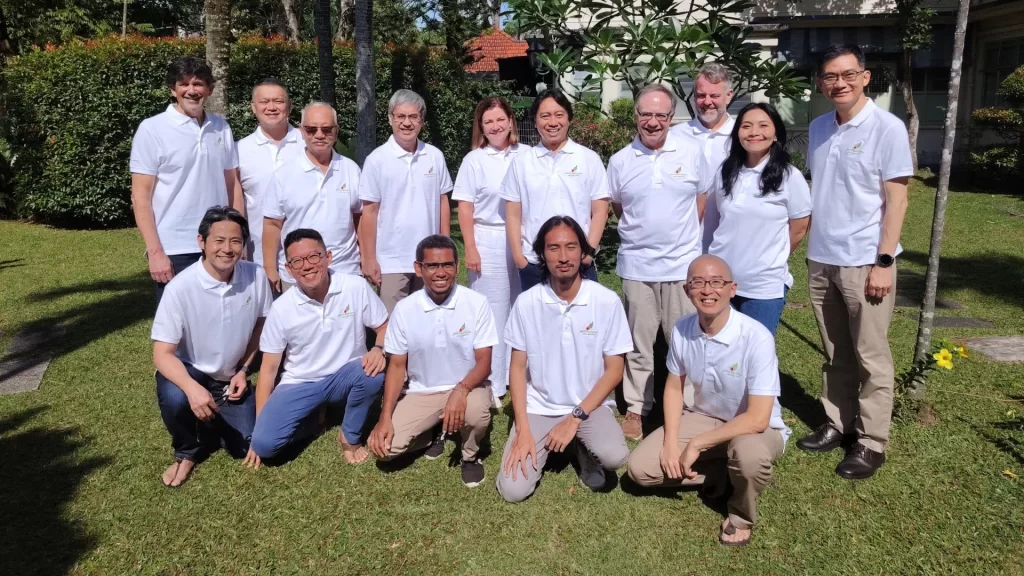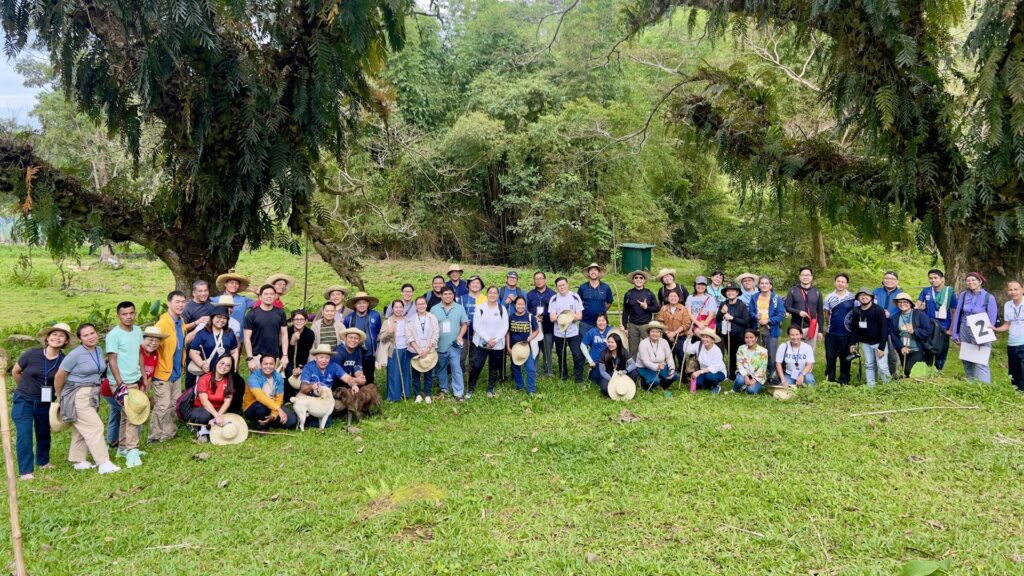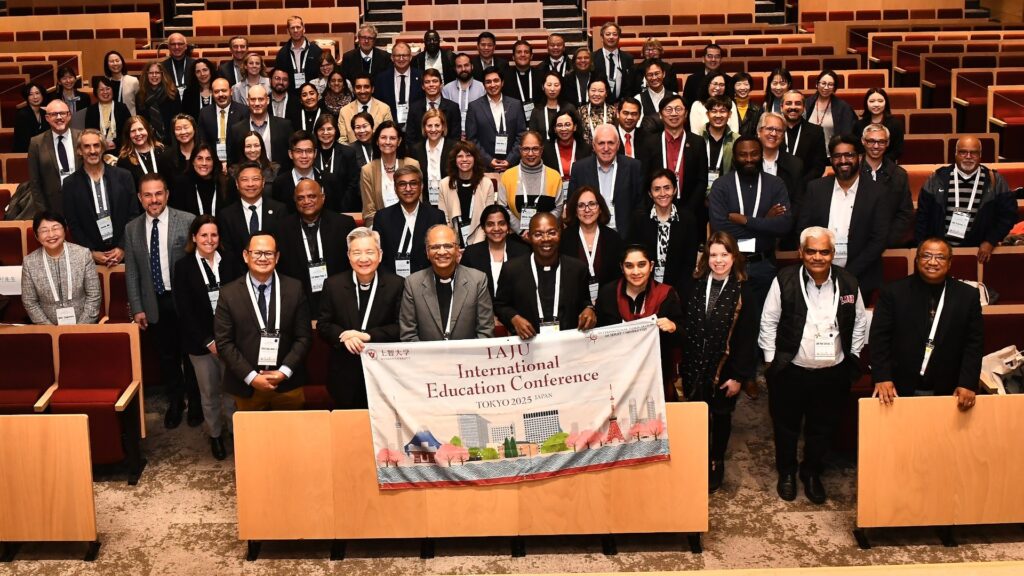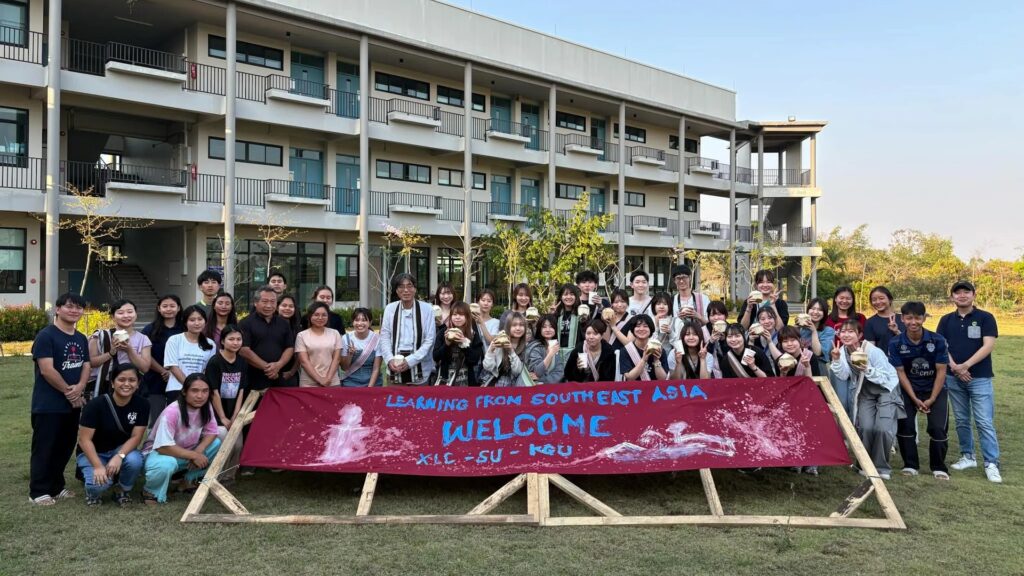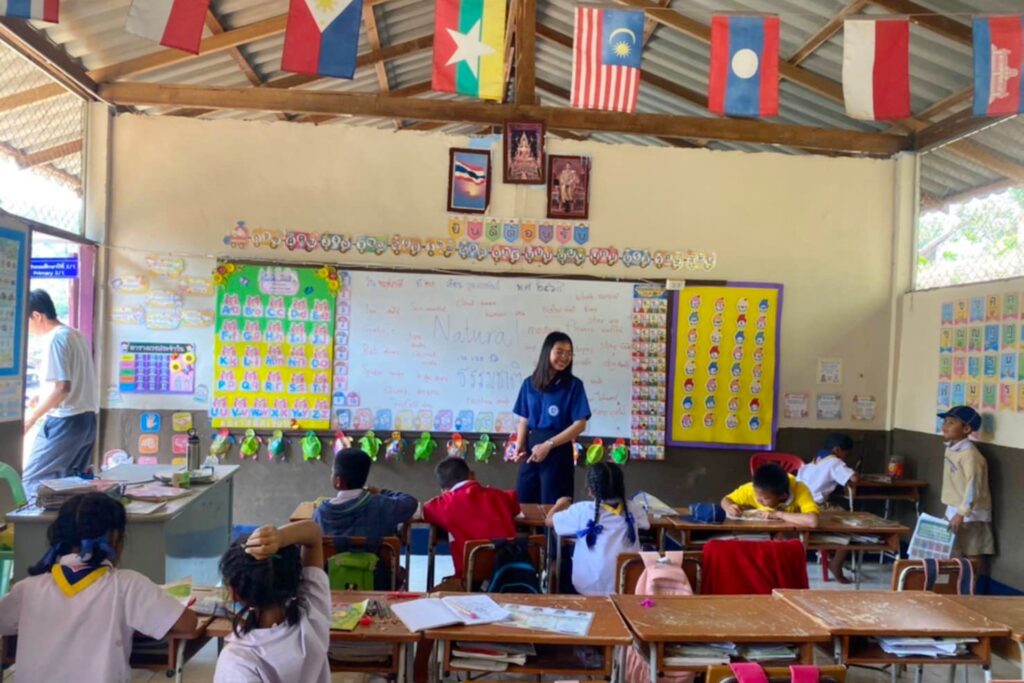Sophia University, the Jesuit university in Japan, celebrated its 100th anniversary on November 1 with a memorial mass in the morning and a formal centenary ceremony in the afternoon. Some 4,200 people attended the ceremony held at the Tokyo International Forum, including Their Imperial Majesties the Emperor and Empress of Japan.
Pope Francis sent a message through his special envoy to the ceremony, His Eminence Cardinal Raffaele Farina. The Pope invited the university “to celebrate its historical and spiritual heritage,” and “to reflect on modern society” according to a dialogue which respects and understands differences.
Sophia was a part of the life of the current Superior General of the Society for many years. Fr Adolfo Nicolás SJ taught theology there for three decades and he sent a message saying he joined the celebration in spirit and prayed that “our Jōchi University fulfils its mission for the sake of Japan and the world.” (“Jōchi” is Sophia’s Japanese name. It means “Sapientia” in Latin, “Wisdom” in English.)
Fr Nicolás added: “The whole world seems to be turning now to Wisdom. And it is doing this with the awareness that Wisdom has many faces and many colours. And that we cannot afford to exclude any part of the Wisdom that God and Creation have bestowed on different peoples. We know that we need the Wisdom of the Sages of old Asia, as well as the popular Wisdom of the poor and simple people looking for a life in the streets of a great number of the Cities of the world. We need the Wisdom of Asia and Oceania, the Wisdom of Africa, the Wisdom of the Americas as well as the Wisdom of Europe.
“It is very meaningful that when the world is turning to Wisdom in order to find finally a way of living together in peace and cooperation, we celebrate 100 years of our University, which from the start has defined itself by this very search: SOPHIA. Because the whole purpose of a University is precisely to accompany and encourage young people to fall in love with Wisdom and, like this, open up new generations of responsible citizens that will contribute to make our world a better place, a place of search, of creativity, of compassion and peace for all. “
In his speech, Chancellor Toshiaki Kōso SJ spoke of “a Catholic university in a country which has less than 1% of its population Catholic”, and how a school grounded in the spirit of Catholicism has been able to grow to its present stature.
It was St Francis Xavier who first dreamt of a university in Miyako, the then capital of Japan. Xavier arrived in to Japan in 1549, and was deeply impressed by the overall excellence and the strength of the intellectual curiosity of the Japanese people. He wanted to establish in Japan a university like the University of Paris, where he had studied, that would excel in academic areas. Xavier imagined a continuous exchange of culture, thought, and religious studies between Europe and Japan coming through this institution. The outlawing of Christianity and subsequent centuries of cruel persecution meant that it would be 360 years before his dream was realised.
In 1906, 350 years after the outlawing of Christianity in Japan, after dialogue with Emperor Meiji, Pope Pius X asked the Society of Jesus to establish an institute of higher learning in Japan. In 1908 three Jesuits – the German Josef Dahlmann, the Frenchman Henri Boucher and the Englishman James Rockliff – were sent to Japan to begin work on the school, which opened in its present location in April 1913.
Today, Sophia Universtiy has more than 12,000 students, eight faculties, 28 departments, and a teaching staff of 1,200 who come from all over the world.
To mark the centennial, Sophia University has planned several international symposia, such as with Georgetown University in Washington DC in the United States, Koln University in German, Luxemburg University and the Gregorian in Rome. Sophia is also planning symposia with Jesuit universities in Asia – Sogang in Korea, Fu Jen in Taiwan, the Ateneo de Manila in the Philippines and Sanata Dharma in Indonesia.
As it looks forward to the next 100 years, Sophia is striving to create a new version of Xavier’s dream, a university supported by five columns of emphasis; life-long education, human welfare, the global environment, international exchanges, and cultivation of men and women who are adequately trained to meet the challenges of the twenty-first century.
Fr Kōso said that the university’s mission towards society is best expressed as follows – “Our concern is to open wide our windows to the turbulence of contemporary society, to share the hopes and frustrations of humanity, and to dedicate ourselves to the welfare and creative progress of the world.” He added that those who want to live according to this educational ideal can truly be called “Men and Women for Others, with Others”.

